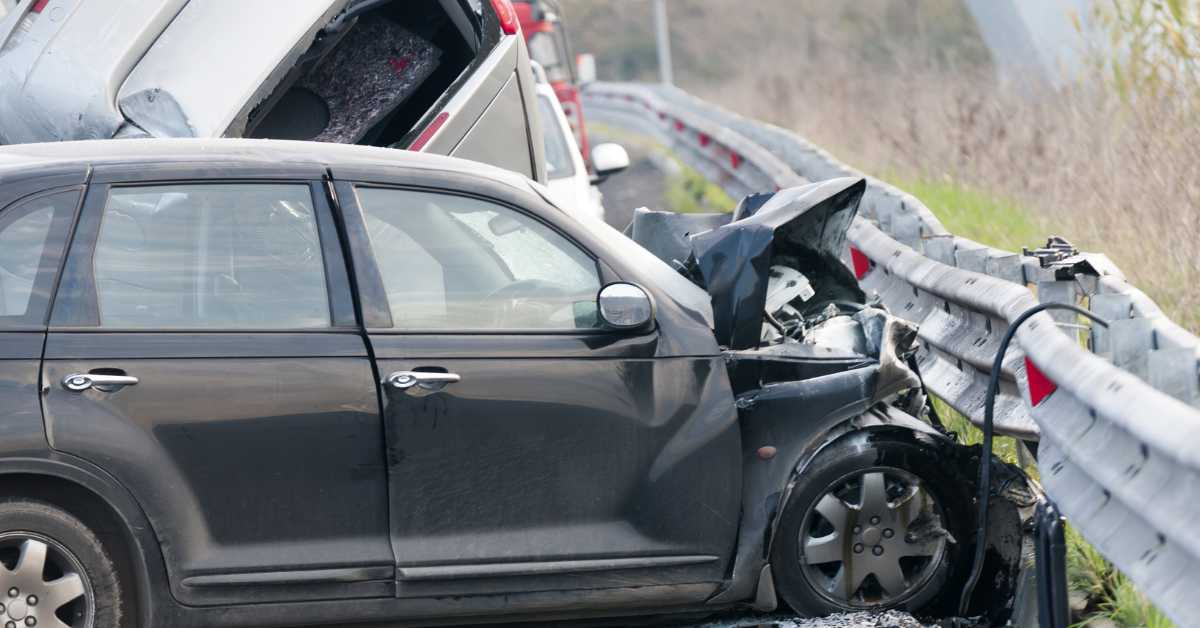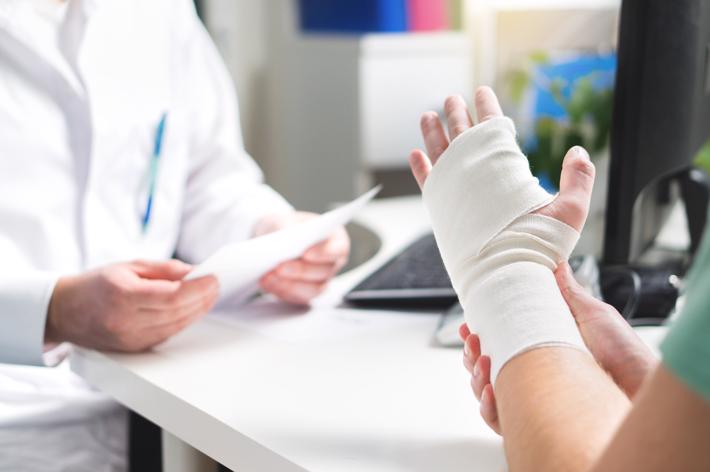What is a Personal Lawsuit After a Car Accident?
Picture this: you’re driving down the road, minding your own business, when suddenly, out of nowhere, another car plows into yours. You’re dazed, shaken, and unsure of what to do. The police arrive, take reports, and you head to the hospital to get checked out. Days later, the pain from your injuries lingers, your car is totaled, and you’re facing a mountain of medical bills. You may be wondering, "What now?" Filing a personal lawsuit after a car accident could be your next step.
A personal lawsuit, also known as a tort lawsuit, is a civil court case in which one party (the plaintiff) sues another party (the defendant) for damages resulting from a wrongful act (a tort). In the case of a car accident, the plaintiff is typically the person who was injured and the defendant is the driver who caused the accident. The damages that can be recovered in a personal lawsuit include compensation for medical expenses, lost wages, pain and suffering, and emotional distress.
Filing a personal lawsuit after a car accident can be a complex and time-consuming process, but it can also be necessary to get the compensation you deserve for your injuries. If you’re considering filing a personal lawsuit, it’s important to speak with an experienced personal injury attorney to discuss your options.
How to File a Personal Lawsuit After a Car Accident
Filing a personal lawsuit after a car accident can be a complex and confusing process, but it’s important to understand the steps involved so that you can protect your rights. Here’s a general overview of the process:
- Gather evidence. The first step is to gather as much evidence as possible to support your claim. This may include medical records, police reports, witness statements, and photographs of the accident scene.
- File a complaint. Once you have gathered your evidence, you will need to file a complaint with the court. The complaint will outline the facts of your case and the damages you are seeking.
- Serve the defendant. Once you have filed a complaint, you will need to serve the defendant with a copy of the complaint and summons. This will notify the defendant that they are being sued and give them an opportunity to respond.
- Discovery. After the defendant has been served, both parties will have the opportunity to conduct discovery. This is a process of exchanging information and documents that are relevant to the case.
- Settlement negotiations. In many cases, the parties will be able to settle their case before it goes to trial. Settlement negotiations can be a complex and time-consuming process, but they can also help to avoid the costs and uncertainties of a trial.
- Trial. If the parties are unable to reach a settlement, the case will go to trial. At trial, both parties will present their evidence and arguments to a judge or jury. The judge or jury will then make a decision on the case.
What to Look for in a Personal Injury Attorney
If you have been injured in a car accident, it’s important to find an experienced personal injury attorney to help you with your case. Here are a few things to look for when choosing an attorney:
- Experience. You want to choose an attorney who has experience handling personal injury cases. This will ensure that they are familiar with the law and the process of filing a claim.
- Track record. Ask the attorney about their track record of success. This will give you an idea of how likely they are to win your case.
- Fees. Be sure to discuss the attorney’s fees with them upfront. This will help you avoid any surprises down the road.
Filing a personal lawsuit after a car accident can be a daunting task, but it’s important to remember that you are not alone. An experienced personal injury attorney can help you through the process and fight for the compensation you deserve.
When Can You File a Personal Lawsuit After a Car Accident?
Unfortunately, car accidents are a pervasive issue, and they can often lead to serious injuries and other damages. If you’ve been injured in a car accident, you may be wondering if you can file a personal lawsuit. The answer to this question depends on a number of factors, including the severity of your injuries, the other driver’s negligence, and the laws of your state. Generally speaking, you can file a personal lawsuit after a car accident if you can prove that the other driver was negligent and that their negligence caused your injuries or other damages..
It’s important to note that the laws governing personal injury lawsuits vary from state to state. In some states, for example, you may need to prove that the other driver was “grossly negligent” in order to recover damages. In other states, you may only need to prove that the other driver was “negligent.” If you’re not sure what the laws are in your state, it’s a good idea to speak with an attorney.
If you’re considering filing a personal lawsuit after a car accident, it’s important to understand the potential benefits and risks involved. One of the benefits of filing a lawsuit is that you may be able to recover compensation for your injuries and other damages. This compensation can help you pay for medical expenses, lost wages, and other costs associated with your accident.
Establishing Negligence
To recover damages in a personal injury lawsuit, you must be able to prove that the other driver was negligent. Negligence is defined as the failure to exercise reasonable care. In the context of a car accident, this means that the other driver must have failed to take reasonable steps to avoid the accident. You can prove your allegations by presenting evidence of the following:
- The other driver was speeding.
- The other driver was driving under the influence of alcohol or drugs.
- The other driver was distracted by their phone or other electronic devices.
- The other driver ran a red light or stop sign.
- The other driver made an illegal turn.
It’s important to note that you don’t need to prove that the other driver intended to cause the accident. You only need to prove that they were negligent and that their negligence caused your injuries or other damages.
If you’re not sure whether you have a case for a personal injury lawsuit, it’s a good idea to speak with an attorney. An attorney can review the facts of your case and advise you of your legal options
Navigating the Legal Process: Personal Lawsuits After Car Accidents
Following a car accident, the aftermath can be a whirlwind of turmoil, leaving you disoriented and with potentially severe injuries. While seeking medical attention remains paramount, understanding your legal rights and options is equally crucial. Filing a personal lawsuit can help you recoup damages and hold the responsible party accountable.
What Damages Can You Recover in a Personal Lawsuit After a Car Accident?
In a personal lawsuit after a car accident, you can recover damages for a variety of losses, including medical expenses, lost wages, pain and suffering, and property damage. These damages can be categorized into two main types:
1. Economic Damages:
Economic damages are those that have a clear monetary value, such as medical bills, lost wages, and property damage. These damages can be easily calculated and are often the focus of insurance settlements.
2. Non-Economic Damages:
Non-economic damages are those that do not have a clear monetary value, such as pain and suffering, emotional distress, and loss of enjoyment of life. These damages are more difficult to calculate and are often a source of dispute in personal injury lawsuits.
Types of Damages Recoverable in a Personal Lawsuit
1. Medical Expenses:
You can recover damages for all reasonable and necessary medical expenses incurred as a result of the accident, including hospital stays, doctor visits, surgery, medication, and rehabilitation.
2. Lost Wages:
You can recover damages for lost wages if you are unable to work due to your injuries. This includes both past lost wages and future lost wages if your injuries are expected to have a long-term impact on your ability to work.
3. Pain and Suffering:
You can recover damages for the physical pain and emotional suffering you have experienced as a result of the accident. This includes pain from your injuries, as well as emotional distress such as anxiety, depression, and post-traumatic stress disorder (PTSD). The amount of damages you can recover for pain and suffering is based on the severity of your injuries and the impact they have had on your life.
4. Loss of Enjoyment of Life:
You can recover damages for the loss of enjoyment of life if your injuries have prevented you from participating in activities that you used to enjoy. This includes activities such as work, hobbies, sports, and spending time with family and friends.
5. Property Damage:
You can recover damages for the repair or replacement of your vehicle and other property that was damaged in the accident. This includes the cost of repairs, the loss of value of your vehicle, and the cost of a rental car or other transportation.
Personal Lawsuit After a Car Accident
Been involved in a car accident? Don’t just sit there and suffer in silence! You have rights, and you can take legal action to get the compensation you deserve. Filing a personal lawsuit after a car accident can be a daunting task, but it’s one of the most important steps you can take to protect your rights and get the justice you deserve.
How to File a Personal Lawsuit After a Car Accident
To file a personal lawsuit after a car accident, you must first file a complaint with the court. The complaint should set forth the facts of your case and the damages you are seeking. The complaint should also include a demand for relief, which is a statement of what you are asking the court to do for you.
Gathering Evidence
One of the most important steps in filing a personal lawsuit is gathering evidence to support your case. This evidence can include medical records, police reports, witness statements, and photographs of the accident scene. The more evidence you have, the stronger your case will be.
Negotiating a Settlement
Once you have filed your complaint, you will likely enter into settlement negotiations with the other driver’s insurance company. Settlement negotiations can be complex and time-consuming, but they can also be a good way to resolve your case without going to trial. If you are able to reach a settlement agreement, you will need to sign a release of liability. This release will prevent you from suing the other driver in the future.
Going to Trial
If you are unable to reach a settlement agreement, your case will go to trial. A trial is a formal proceeding in which a judge or jury will hear evidence and decide who is liable for the accident. If you win your case, you may be awarded compensation for your injuries, lost wages, and other damages.
Personal Lawsuit After a Car Accident: What to Expect
I was recently involved in a car accident and am considering filing a personal lawsuit. Any advice? Please keep me updated on what to expect during the process.
Navigating a personal lawsuit after a car accident can be a challenging path. Preparation is paramount. Here’s a comprehensive guide to help you understand the process:
Gathering Evidence
The foundation of your lawsuit is evidence. Gather medical records, police reports, witness statements, photographs, and any other documentation related to the accident. These elements help establish liability and the extent of your injuries.
Filing a Complaint
Once you have gathered sufficient evidence, you can file a complaint with the court. This document outlines your claims, the legal basis for your lawsuit, and the damages you seek. The complaint formally initiates the legal process.
Discovery
This phase involves the exchange of information between the parties. Both sides can request documents, interrogatories (written questions), and depositions (oral testimonies). Discovery helps clarify the facts of the case and identify any potential weaknesses.
Negotiation and Settlement
Often, personal injury lawsuits are settled before trial. Negotiations involve discussions between the parties and their attorneys to reach a mutually acceptable resolution. Settlements can save time, money, and emotional distress.
Trial
If negotiations fail, the case will proceed to trial. A judge or jury will hear the evidence and determine liability and damages. Trials can be lengthy and unpredictable, so it’s crucial to prepare thoroughly.
Post-Trial
After the trial, the verdict is issued. If you win, you will receive compensation for your injuries and other damages. However, the other party can appeal the verdict, which may delay or overturn the outcome.
Remember, this is just a general overview. The specific details of your case may vary. It’s highly recommended to seek guidance from an experienced personal injury attorney to maximize your chances of success.





Leave a Reply